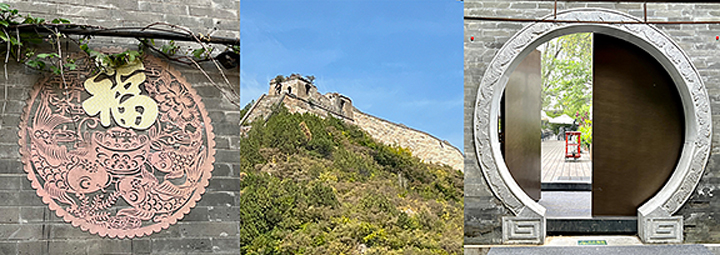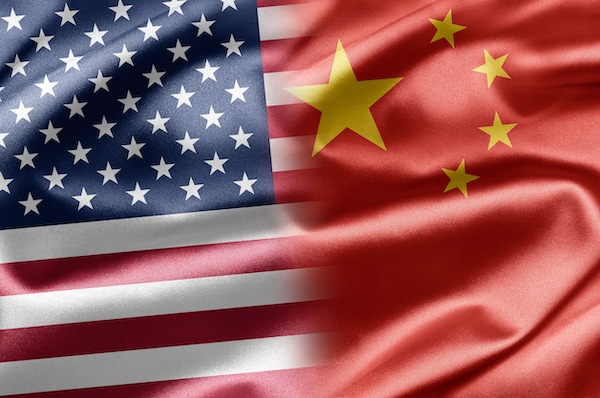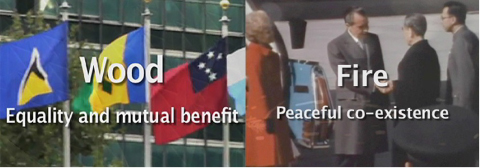Report and Update
from the Zhou Enlai Peace Institute
Renewal of Relations between China and the United States
Beginning in mid-August, through mid-October 2023, the founders of the Zhou Enlai Peace Institute attended a series of meetings in Beijing at the invitation of young business leaders, researchers and government officials.

For 12 years, the Peace Institute has sponsored many public, academic and media events, both in China and in the U.S., at sites ranging from the United Nations to the Nixon Library, from the Hawaii State Capitol to APEC, from the Ministry Foreign Affairs in Beijing to a National Memorial in Jiangsu Province, to Nankai University, to Shanghai Academy.
All events have had a common theme: friendship and cooperation between people in the United States and China.

Because of this long proven shared experience, trusted friends in China are asking for advice today from the Zhou Enlai Peace Institute: “How can we establish a setting of mutual trust and respect, based on friendship and joint responsibility, between China and the U.S”?
The meetings in Beijing established several principles:
- People’s diplomacy is the most practical immediate way to set the two nations on a renewed path of confidence.
- Actions that support formal diplomatic, trade, academic, technology and security relations but are independently directed were discussed.
- With heart-to-heart connection among ordinary Chinese and American people, experienced as stories, presentations and arts that people of all ages and stages can share, confidence has a chance to flower.
- A resilient and durable alliance between the two great powers, working within established channels like APEC, the Olympics and the United Nations and supported by people’s diplomacy, opens the door to resolution of many global issues.
Priority is urgent, and has already begun, through private discussions, and through the luncheon on November 11, 2023, where invited peacemakers and leaders gather to tell stories, listen, feel and understand, and ask the guidance of Heaven on our work

The Five Principles of Peace
China’s perception of the world is rooted thousands of years deep in Confucian culture, as officially recognized by China today.
In late 1953, Zhou Enlai, who was then both Premier and Foreign Minister and a veteran general in the struggle for the New China, synthesized this philosophy in five simple expressions, which came to be known as the Five Principles of Peace.
In the Beijing discussions with the Zhou Enlai Peace Institute, the Five Principles were acknowledged as fundamental to China, in the same way that the United States Constitution is fundamental to America.
The question Zhou posed to himself, in the winter Beijing darkness, seeing multiple global struggles that had recently devastated the world and with more struggles looming, was:
“Is there anything that all people can agree upon, some simple idea that is easily grasped by all, that could serve as the foundation of peace for all, regardless of their specific national, economic, racial, historic, cultural and military positions?”

His answer:
土 Earth: 1) Mutual respect for each nation’s territorial integrity and sovereignty.
our root and beginning — the primary element, our birth and source, the land upon which we walk.
金 Metal: 2) Mutual non-aggression
generated from the earth, it rises in infinite varieties of self-expression. The individual self is creative and powerful, when it is balanced with the importance of our larger self — in society, humanity and nature.
水 Water: 3) Mutual non-interference in each other’s internal affairs.
generated from metal. Water flows around all obstacles, humbly seeking the lowest position, with great power to form change in the earth.
木 Wood: 4) Equality and mutual benefit
generated from water. Wood is used equally by all to create wealth and shelter, with equality of opportunity, and generosity for all, regardless of whether they appear great or small.
火 Fire: 5) Peaceful co-existence
which springs from wood, and fuses the other elements. Fire provides heat for the home, security for the family, light for the spread of knowledge, and inspiration for the soul.

The Five Principles were recognized by the United Nations, proved decisive in organizing the Bandung Conference of non-Aligned Nations, and were incorporated in the Charter of the World Trade Organization. They are the first topic analyzed and mastered by Chinese diplomats, for example at the Zhou Enlai School of Government at Nankai University.
(The association of the Five Principles with the Five Elements of Chinese philosophy was made for the Zhou Enlai Peace Institute through a collaboration between Xiaofang Zhou and T’ai Chi Master Huang Chungliang, who performed it in dance at the National People’s Congress)
Understand the Five Principles of Peace: then, begin to understand China.